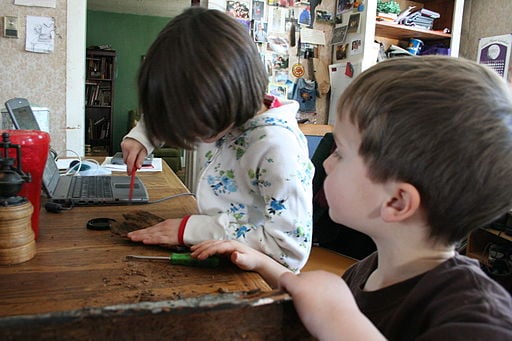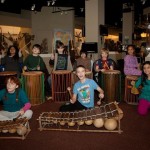(Warning: This is a ridiculously long post – made longer by this warning. But I loved this last skill. Back to short and sweet tomorrow.)
We were at a birthday party last week when one of the girls from Zach’s 1st grade class asked him, “So you have school in your house now?”
“Yeah,” he answered as his eyes lit up.
“Well, do you learn anything there?” she asked skeptically.
“Mmmhmmm.”
“Do you know who Mahatma Gandhi is?”
This was gonna be bad. I just knew it.
He slumped a little, and with downcast eyes he whispered, “No.”
She started laughing, and I started trying to remember all of my 8th grade tricks for taking down the hated girl without the adults all around us noticing.
But I resisted and later tried to process the conversation with Zach. It was of no use, though. He wants to know stuff, and to know at least as much stuff as other people, preferably more. My attempts to teach him at home this fall were tested and found lacking.
Ugh. How do I explain to him that I want him to love the world, and himself, and others, and the God who made them all so wonderfully? That I want him to get really excited about the stuff he sees all around him. That I want him to ask good questions and come up with exciting answers. That I want more for him than the ability to compete well in a second grade fact-off. I know that you don’t need to homeschool to get all of that, but I wanted him to know that we are doing all of this with a big dream in our hearts. It didn’t work. He asked me how many months it was until he could go back to “real” school.
I’ve been reading Ellen Galinsky’s excellent book, Mind in the Making, for the last week-and-a-half, thinking about how to incorporate the seven essential life skills she writes about into our family life. She started the project that led to the book when she noticed that, “Far too many,” of the 6th to 12th graders she interviewed, “from all kinds of families, schools, communities, and parts of the country–seemed deadened by the notion of learning…What happens to extinguish that passion? What happens to dull their eyes?”
Her goal in conducting eight years of research and distilling what she learned into a book for lay people was to answer those questions and to figure out how to help children, “stay motivated and engaged in learning, to see themselves as learners, and to be lifelong learners.” It’s a goal I share. As do all of the parents I know.
So what should we do? Drawing on an example she uses throughout the book, she encourages parents to help kids with their “lemonade stands.” Lemonade stands are those ideas, passions, and projects that are so motivating that you don’t have to bug them to get off of the TV to engage in them. They’ll spend their allowance on them. They’ll read more and more difficult books to learn about them. They’ll talk to you and even listen to you if it’s about them. Run with the lemonade stands.
In our case right now, it’s a puppet theater. The boys want to build a puppet theater and have a shadow puppet show for their friends. They ask Jeff nearly every day if they can get the wood for it. And they will work for minutes at a time (no small feat around here) on their puppets and adapting the book into a script. We’re running with it.
Here are some more suggestions on how to encourage self-directed, engaged learning:
- Build trustworthy relationships with children so they feel safe to take risks. If they know that you love and support them, they are more likely to take on a bigger lemonade stand project than they might have otherwise thought of trying.
- Help children set and work toward their own goals. This one is harder for me. My kids usually have stupid goals, like getting really good at Bakugon. They didn’t come to me one day and say, “Hey. Let’s build a puppet theater!” That was one of my ideas initially. I hope that counts because learning how to make and execute and modify a plan in the service of a long-term goal is key to developing those executive functions that are critical.
- Involve the whole child. Children are physical, social, and cognitive (and I would add spiritual) beings. We should give them multiple opportunities to have meaningful, connected learning experiences where they experience, rather than just hear about, the world. This is why the unit study is so great (many thanks to Zach’s 1st grade teacher, who suggested I do things this way). The boys get to get dirty, make music, color, draw maps, put together puzzles, cook, read, pray, and so much more – all while studying China. (It doesn’t hurt that we could afford to go to China last summer. But I hope it will work for space exploration, and we don’t have it like that.)
- Elaborate on and extend their stories, ideas, and plans. Ask them lots of the “wh” questions; challenge them to take their experiment or poem or research project to the next level.
- Help children strive for their “personal best.” For those of you who read about my dilemma concerning Charlotte Mason’s habit of perfection, this section of the book was really helpful. She cites Craig Ramey who says that practice is most effective when it encourages one “to work toward perfection – to challenge oneself to come to a new level of performance.” This idea of working toward perfection could be really helpful in getting Zach to slow down and practice. “If we are driven by the desire to do our personal best [as opposed to his desire to beat others or prove himself worthy by being fast], practice becomes part of that motivation.”
- Help children take on increasing accountability.
- Foster a community of learners. Here, some might argue that it was a bad idea to pull the boys out of school. And I can see their point. But we’re trying to foster that community among our family. We’ll see how it goes.
You might notice that the list draws on a lot of the first six skills. But that makes sense. I don’t know if being a lifelong learner is a skill as much as the goal of the other skills. Whatever you call it, I loved this book. Thanks Ellen!
Finally, I’ve loved comparing Galinsky’s book to a book I’ve been reading at the same time, a book with writing from Charlotte Mason, a Victorian schoolteacher. She didn’t have a lot to say on this skill, but I feel bad leaving her out of the last post in the series, so I’ll end with this little nugget cuz I appreciate a no-nonsense gal — who would have had a thing or two to say to Zach and his friend and his mother, all of whom occasionally worry that he isn’t learning enough this year.
The children did passably, but each of these children had in them the makings of excellent character, or a brilliant mind. Where was the key that could unlock the potential in each of these children?…If education is going to help the individual and the human race to progress, than it must have more relevance to life than plodding along at small, trivial tasks that amount to nothing more than busywork.
Amen, sister.











